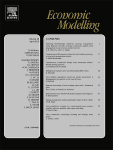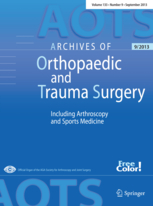 If you happen to pick up this month’s issue of Economic Modelling, there’s a little surprise on page 307—blank pages. Publisher Elsevier has retracted a paper from that space because it “inadvertently published” the paper in the journal. In fact, Elsevier meant to include the paper in the pages of its other journal, Energy Economics.
If you happen to pick up this month’s issue of Economic Modelling, there’s a little surprise on page 307—blank pages. Publisher Elsevier has retracted a paper from that space because it “inadvertently published” the paper in the journal. In fact, Elsevier meant to include the paper in the pages of its other journal, Energy Economics.
The paper, “An Approach to Computing Marginal Land-Use Change Carbon Intensities for Bioenergy in Policy Applications,” is most assuredly not about economic modeling. Rather, it describes an approach for assessing carbon emissions from the production of bioenergy crops.
Here’s the retraction notice: Continue reading A tale of two journals: Elsevier retracts paper after publishing it in the wrong journal

 Oncogene is retracting a 2010 paper on
Oncogene is retracting a 2010 paper on 




